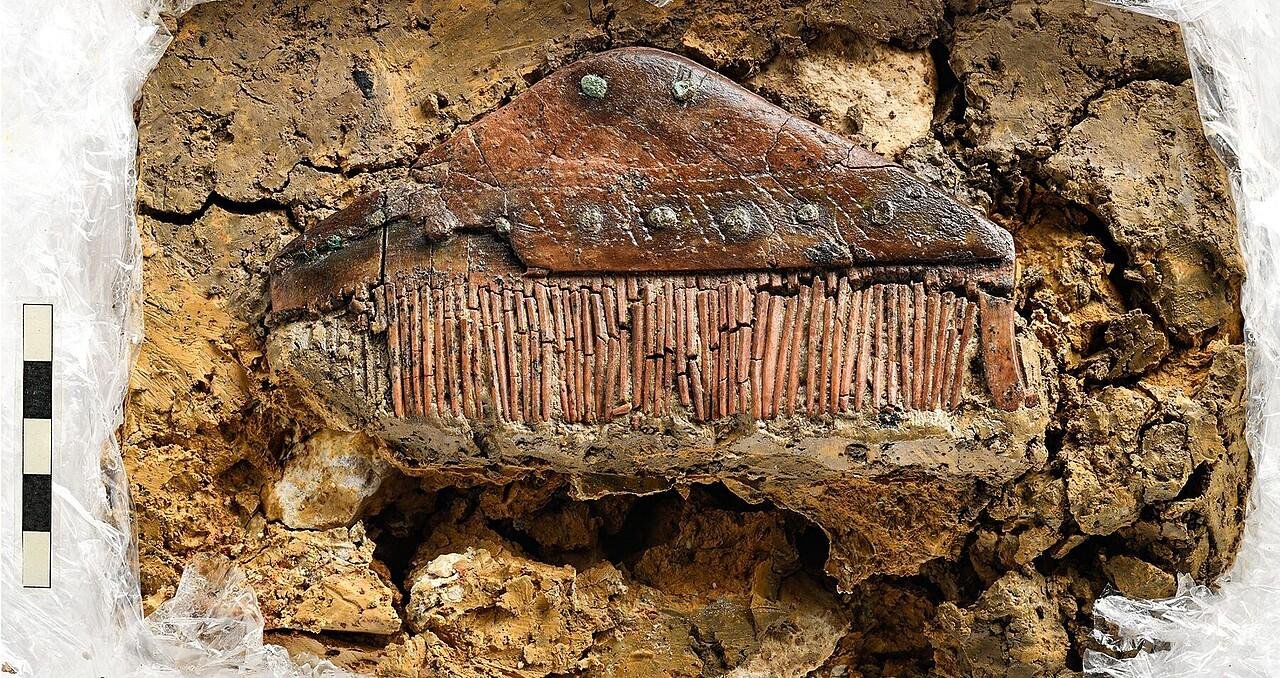During recent excavations in Gerstetten, located in the Heidenheim district of Germany, archaeologists uncovered a rare Alemannic chamber grave dating back to the early 4th century.
 Alemannic chamber grave discovered in Germany. Credit: ArchaeoBW / State Office for Monument Preservation in the Stuttgart Regional Council
Alemannic chamber grave discovered in Germany. Credit: ArchaeoBW / State Office for Monument Preservation in the Stuttgart Regional Council
This significant discovery was made by a team from the archaeological firm ArchaeoBW, working under the commission of the State Office for Monument Preservation (LAD) in the Stuttgart Regional Council. The excavation was initiated as part of a rescue operation in preparation for a new housing development project in the area.
The grave, found unexpectedly in the village center, was constructed as a wooden chamber and contained the skeletal remains of a man approximately 60 years old. The burial site, which dates back to between CE 263 and 342, was characterized by its solitary location, a typical feature for graves from this period.
The archaeologists were able to confirm the age of the deceased and the dating of the grave through radiocarbon analysis of one of the man’s rib bones. The bone sample was sent directly from the excavation site to a laboratory in Mannheim, where it was analyzed.
 A small decorated comb discovered inside the grave. Credit: Yvonne Mühleis / State Office for Monument Preservation in the Stuttgart Regional Council
A small decorated comb discovered inside the grave. Credit: Yvonne Mühleis / State Office for Monument Preservation in the Stuttgart Regional Council
Inside the grave, several valuable grave goods were discovered, including ceramic and glᴀss vessels, a small decorated comb, and a high-quality glᴀss cup. The glᴀss cup is believed to have originated from the nearby late Roman fort of Guntia (modern-day Günzburg). The presence of such items suggests that the deceased was a person of some status within the Alemannic society.
The discovery is particularly significant as early Alemannic graves are rare in the Baden-Württemberg region. Most early Alemannic graves are usually found in small groups of five to twelve. This solitary grave, however, stands out due to its elaborate design and the quality of the artifacts found within it.
Following the excavation, the artifacts were transported to the LAD restoration workshop in Esslingen for further analysis and preservation. Two ceramic vessels have already been restored, and the remaining finds, including the human bones, are still being documented by the excavation team.
The Stuttgart Regional Council has expressed hope that more graves could be discovered in the area to the south of the current excavation site, which has not yet been investigated.
The Alemanni, also known as the Alamanni, were a confederation of Germanic tribes that emerged on the east bank of the Rhine River. First mentioned in CE 213 by the Roman historian Cᴀssius Dio, the Alemanni inhabited regions that now encompᴀss southwestern Germany, as well as parts of modern-day France, Switzerland, Liechtenstein, and Austria.
They were known for their distinctive burial practices, which often involved interring the deceased with various grave goods, as seen in the recent discovery in Gerstetten.
Stuttgart Regional Council





